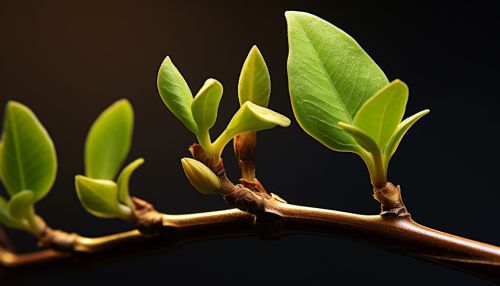The Science of Plant Hormones and Growth Regulation
Introduction
Plant hormones, also known as phytohormones, are chemical substances that play a crucial role in regulating plant growth and development. They are produced naturally within plant cells and are responsible for coordinating growth and development through the control of physiological processes.


Types of Plant Hormones
There are five major types of plant hormones: auxins, gibberellins, cytokinins, abscisic acid, and ethylene. Each of these hormones has a unique role in the life cycle of a plant, from germination to senescence.
Auxins
Auxin is a type of plant hormone that plays a key role in the elongation of cells, which contributes to plant growth. It is also involved in the regulation of cell division and differentiation, as well as the formation of vascular tissues.
Gibberellins
Gibberellin is another plant hormone that is crucial for stem elongation, germination, and flowering. It also promotes cell division and growth in the leaves and stems.
Cytokinins
Cytokinin is a plant hormone that promotes cell division and growth. It is also involved in the process of bud formation and the growth of shoots and roots.
Abscisic Acid
Abscisic acid is a plant hormone that plays a role in the closing of stomata, dormancy, and other protective functions. It is also involved in the regulation of plant-water relations.
Ethylene
Ethylene is a gaseous plant hormone that is involved in the ripening of fruits, the shedding of leaves, and the aging process in plants.
Regulation of Plant Growth
Plant hormones regulate plant growth through a complex network of signaling pathways. These pathways involve the interaction of hormones with specific receptors in the plant cells, which triggers a series of biochemical reactions that lead to changes in gene expression and cellular processes.
Hormonal Control of Cell Division and Differentiation
The process of cell division and differentiation in plants is regulated by hormones such as auxins, cytokinins, and gibberellins. These hormones interact with specific receptors in the plant cells, triggering a series of biochemical reactions that lead to changes in gene expression and cellular processes.
Hormonal Control of Plant Development
Plant hormones also play a key role in the regulation of plant development, including the formation of flowers, fruits, and seeds. For example, gibberellins are involved in the initiation of flowering and fruit development, while auxins and cytokinins regulate the formation of roots and shoots.
Conclusion
In conclusion, plant hormones play a crucial role in the regulation of plant growth and development. They are involved in a wide range of physiological processes, from cell division and differentiation to the formation of flowers, fruits, and seeds. Understanding the roles of these hormones in plant physiology can provide insights into the mechanisms of plant growth and development, and can also have practical applications in agriculture and horticulture.
